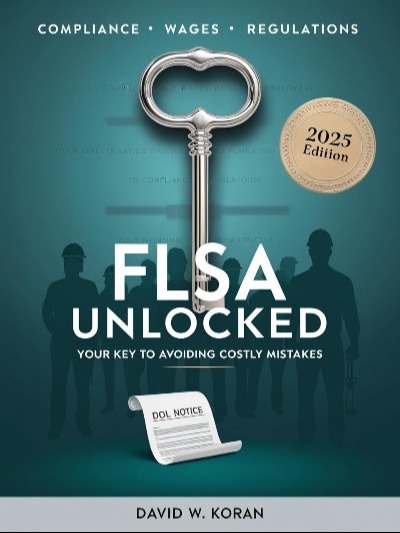Minnesota FLSA Laws: Your Guide to Compliance
Ensure Compliance with Minnesota-Specific FLSA Auditing
Minimum Wage in Minnesota
- Federal FLSA: $7.25/hour.
- Minnesota Law: $11.15/hour (large employers, annual sales ≥ $500,000) and $9.13/hour (small employers, annual sales < $500,000) as of January 1, 2025, with annual adjustments based on inflation (Minnesota Statutes, § 177.24). Tipped employees: $11.15/hour (large employers) or $9.13/hour (small employers) with no tip credit allowed—employers must ensure full minimum wage regardless of tips. Certain cities like Minneapolis ($15.57/hour) and St. Paul ($15.57/hour) have higher local rates as of January 1, 2025.
- What You Need to Know: The higher of state, federal, or local rates applies. Violations can trigger back wages, liquidated damages, and fines up to $1,000 per offense.
Overtime Pay
- Federal FLSA: 1.5x regular rate for hours over 40/week.
- Minnesota Specifics: State law requires 1.5x regular rate for hours over 48/week (Minnesota Statutes, § 177.25), but federal 40-hour rule applies to FLSA-covered employers, taking precedence due to broader coverage. Overtime is calculated using the employee’s regular rate or the applicable minimum wage (e.g., $16.73/hour for large employers in 2025). Exemptions mirror federal rules, but misclassification risks are high.
- Risk: Failing to align with the stricter federal 40-hour threshold or misapplying exemptions can lead to audits by the Minnesota Department of Labor and Industry (DLI) or U.S. DOL.
Child Labor
- Minnesota Rules: Minors under 14 generally prohibited from work except in specific roles (e.g., newspaper delivery); 14–15 limited to 3 hours/school day, 8 hours/non-school day, and 40 hours/week during non-school periods; 16–17 restricted from hazardous jobs (e.g., operating heavy machinery). Work permits required for those under 16 (Minnesota Statutes, § 181A.04).
- Federal FLSA: Aligns with Minnesota on age and hazardous job restrictions, but Minnesota’s permit requirement and tighter hour limits are stricter—state law governs where more protective.
- Compliance Note: Violations can incur fines up to $5,000 per offense, with higher penalties if injury or death results.
Recordkeeping
- Federal FLSA: 3-year retention of payroll, hours, and employment records.
- Minnesota Addition: 3-year minimum retention, with detailed records required for wages, hours worked, deductions, and pay stubs (Minnesota Statutes, § 177.30). Employers must provide employees access to records upon request.
- Key Detail: Non-compliance can lead to fines up to $1,000 per violation and complicate defense in wage disputes.
Enforcement & Penalties
- Federal: U.S. DOL enforces with back wages, liquidated damages, and penalties averaging $1.2M for significant violations. Child labor violations can reach $15,629 per instance, or $71,031 if serious injury/death occurs.
- Minnesota: Minnesota DLI enforces state law with fines up to $1,000 per wage violation, $5,000 per child labor violation, and double damages for willful unpaid wages (Minnesota Statutes, § 177.27, § 181A.12). Criminal penalties may apply for repeated willful violations.
- Overlap: Employers must comply with the stricter of federal or state penalties, amplifying risk for non-compliance.
Why It Matters for Your Business
- CFOs and Managers: Minnesota’s dual state-federal framework, rising local minimum wages (e.g., Minneapolis, St. Paul), and no-tip-credit policy increase payroll complexity. A single misstep—misclassifying an employee or missing overtime—could snowball into six-figure liabilities or class-action lawsuits.
- Avoid Costly Mistakes: Proactively audit your payroll and policies with Minnesota-specific FLSA expertise to sidestep penalties and litigation.
Schedule Your Minnesota FLSA Audit Today
Stay ahead of compliance risks—ensure your business aligns with Minnesota’s unique labor laws and federal FLSA standards. Contact an expert today for a tailored audit.

